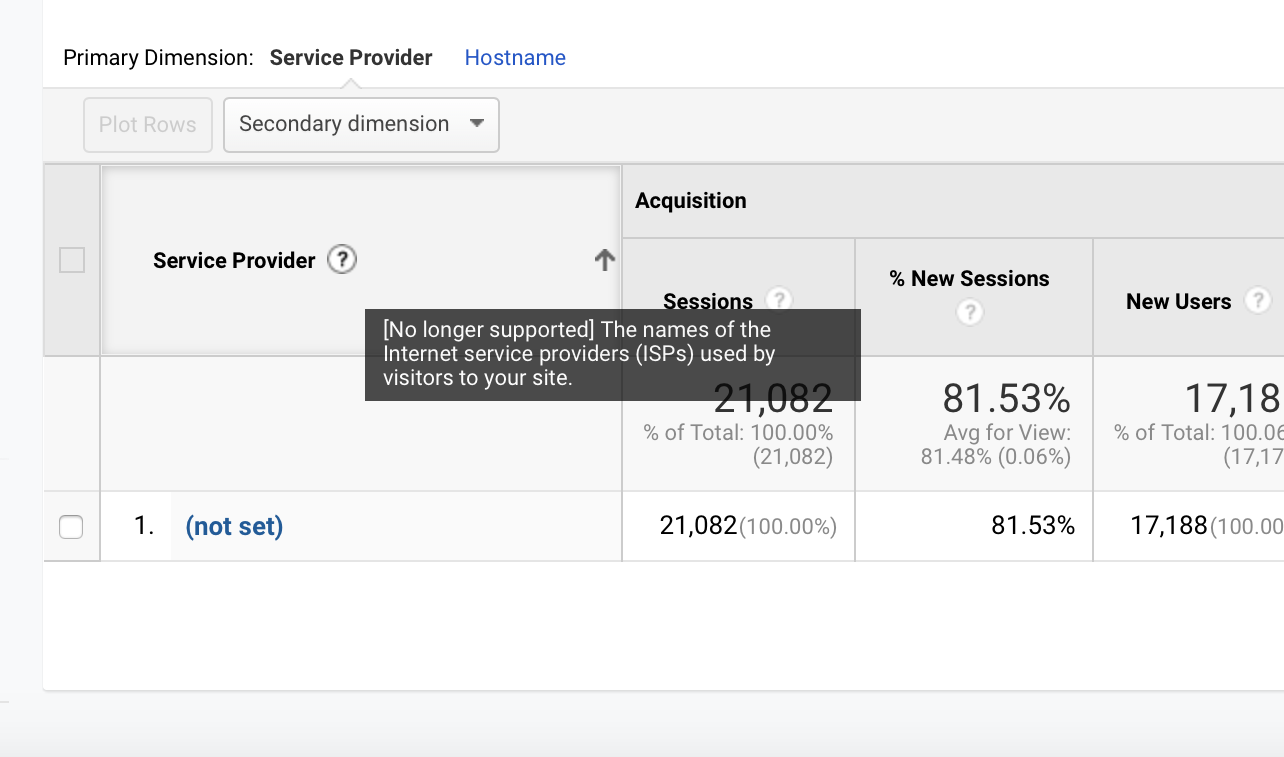Your cart is currently empty!

Google No Longer Reports Networks
Google Analytics reported visitors’ networks until recently, but they have stopped reporting this information. The report still shows up under Audience> Technology> Network but it is now all “not set.”
What did the Network report tell you?
This report told you the internet service providers of the people who came to your website. Usually, most of the networks they mentioned were internet services like Verizon or Cox.
However, there are other networks. Larger companies, schools, government offices, hospitals, and many other types of networks could also show in your analytics. Some of the things you could glean from this report:
- Which companies might be interested in your goods and services
- Which of the issues you wrote about were of interest to Congress or other government offices
- Whether schools and colleges used your website for research
- Which news outlets visited your website
Whether you wanted to identify prospects to approach or to establish your thought leadership, the Networks report had valuable information for many websites.
People also used this info for filtering bot or internal traffic.
Why is this information gone?
Google hasn’t given any official statement on the subject. They’ve confirmed that they are not supporting these reports any more, but haven’t said why. “As we continue to evolve our product,” they wrote in their Help Center, “we regularly review how we process and make data available, and this change was a result of this examination.”
We’re speculating that it has to do with privacy. While the network rarely includes individual information — most people don’t own their own networks — these reports did tell us which school district, company office, or street address was visiting. From the point of view of lead generation or persona building, that’s more valuable than individual names. But is it an invasion of privacy?
There are quite a few new privacy bills being considered in Congress, from the Do Not Track Act to the the Preventing Real Online Threats Endangering Children Today (“PROTECT”) Kids Act to the Algorithm Accountability Act. (I am convinced that there are people whose job it is to make up cute acronyms for proposed legislation.) Google may simply be trying to get ahead of this before one of these bills becomes law.
Now what?
If the Networks report was a major lead generation tool for you, you might want to shift to software that focuses on this, such as Sharp Spring, Hubspot, or Leadfeeder.
There are plenty more options. However, many of them based their services on data pulled from Google Analytics. They will no longer have that information. Fastbase, for example, does not appear to be working.
If lead generation is not the point for you, you should probably go back into the past data and download what you can. You will know what percentage of your visits were from the audience you have in mind — schools and government departments of education, for our lab site, as an example. We won’t be able to see future changes, but we will know the baseline data.
by
Tags:

Leave a Reply